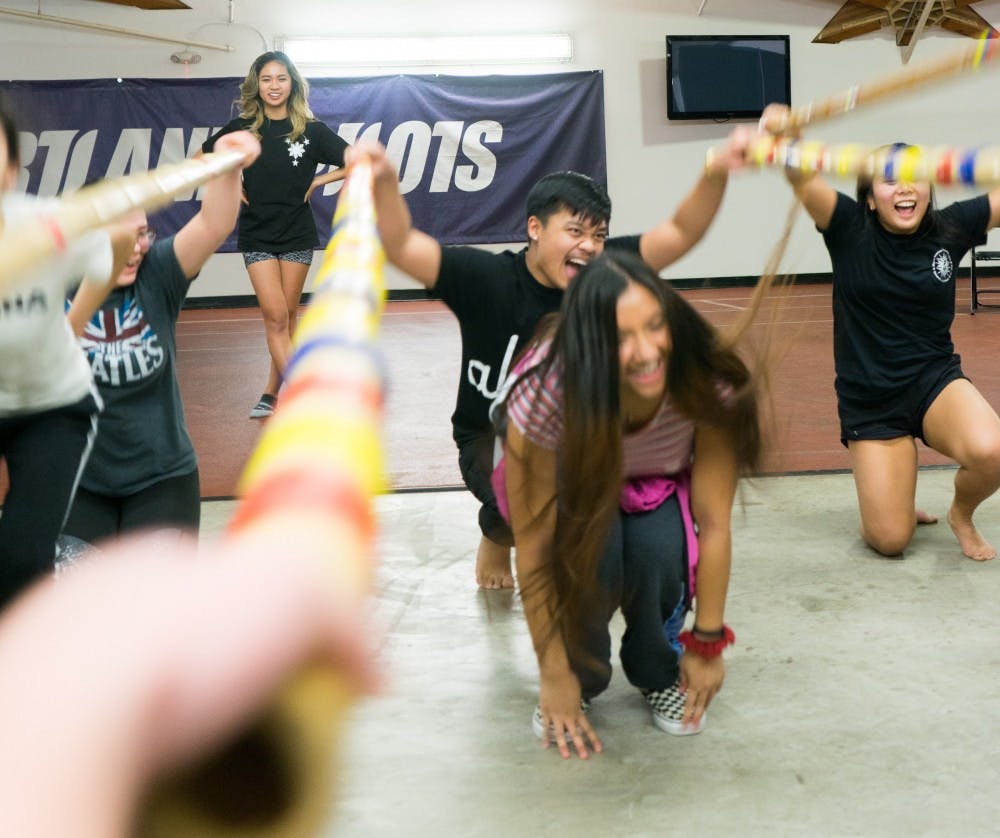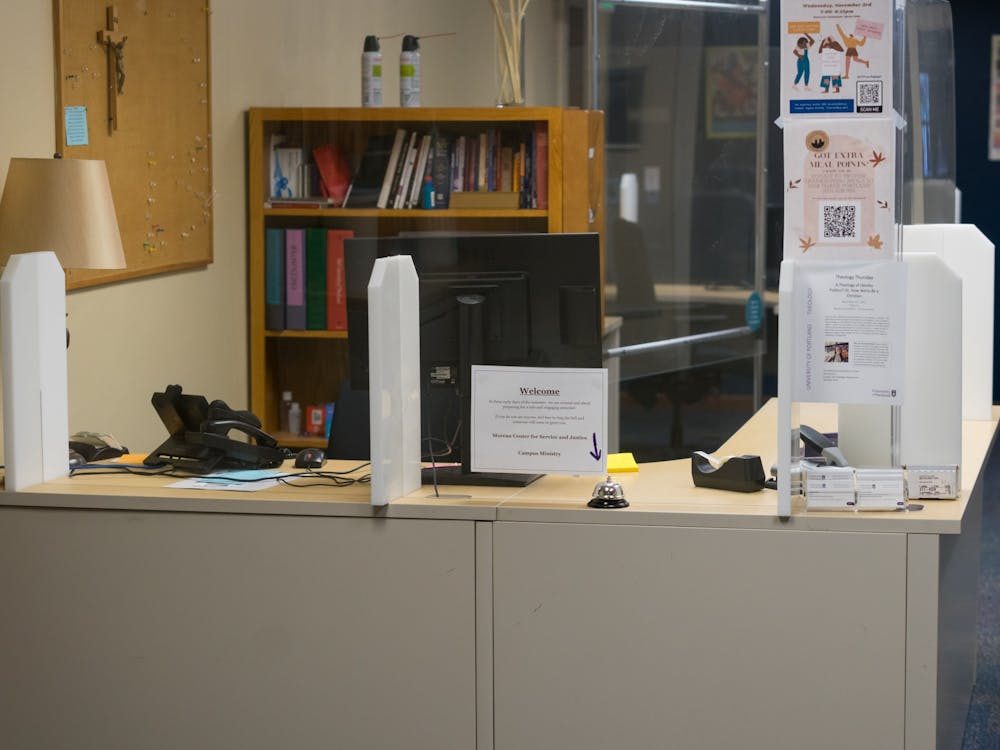Wednesday is usually a tough day for college students. It’s the middle of the week, and while Friday is only two days away, most students are already exhausted and eager for the week to be over. But at 9 p.m. in the mezzanine level of the Chiles Center, a group of students are getting ready for a long night ahead. It’s “hell week,” and they still have a lot to do.
“Let me see your poses,” yells senior Chloe Tanega. The other students dutifully oblige.
The group is one of UP’s cultural clubs, Filipino American Students Association (FASA), and Tanega is club president. Even though it’s dark outside and most students are either in the library working or in their rooms, the FASA members are hard at work preparing for Friday’s Pilipino Cultural Night (PCN).
The event will be held March 15 in the Quiet Side of The Commons at 7 p.m. Tickets are five dollars and are being sold from 10:45 a.m. to 1:30 p.m. in The Commons up through Friday or at the door.
The cultural club has held the well-known event every year since 2014. It’s a night full of traditional Filipino dances, Filipino food, skits and spoken poetry to celebrate their Filipino heritage and showcase it to the rest of the school. Families come to watch their sons and daughters perform, and the event typically sees an attendance of around 300 people.
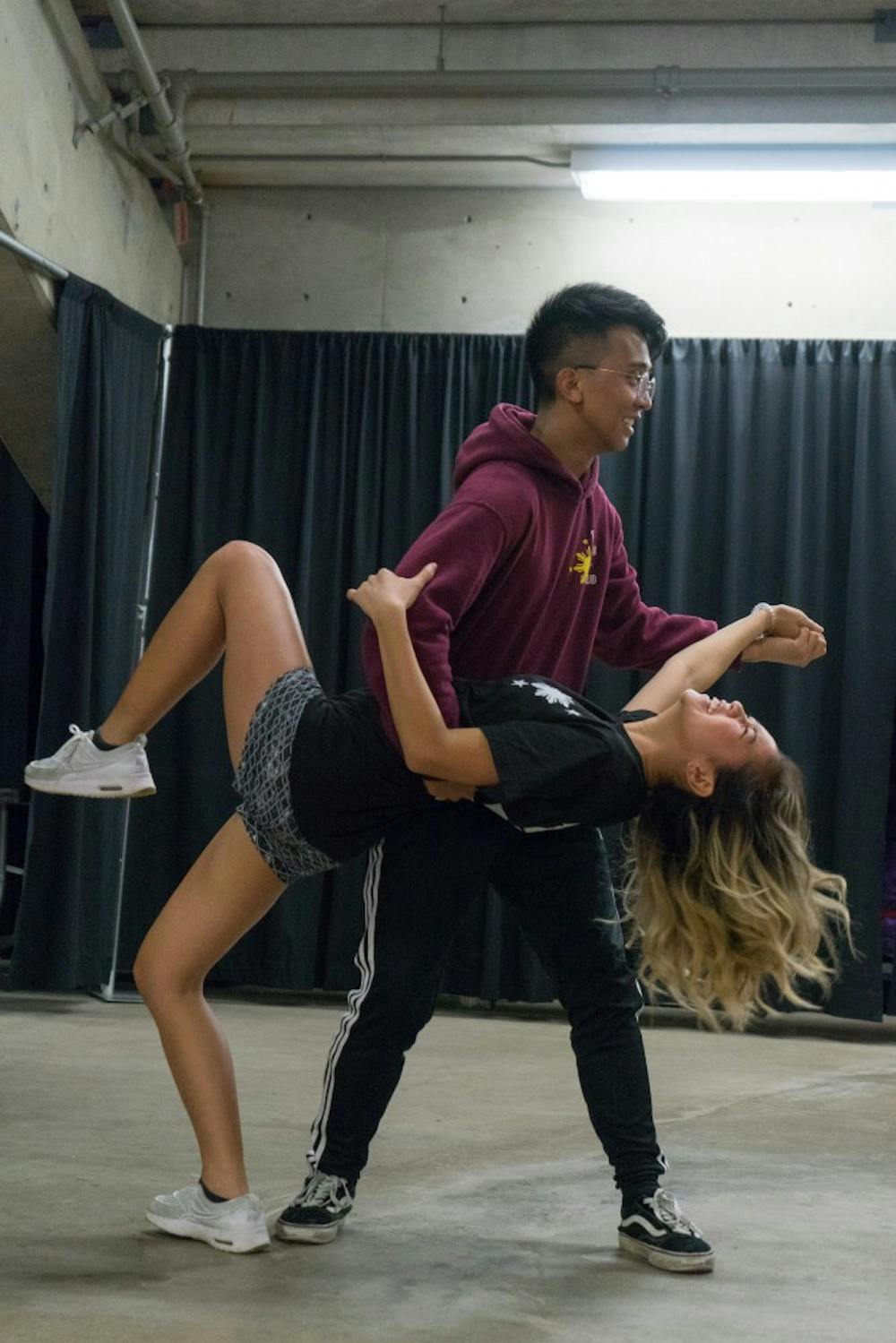
Kyle Dela Cruz dips FASA president, Chloe Tanega, as they rehearse their dance for Cultural Night.
With this being the fifth anniversary of PCN, the theme FASA members chose is “Hanggang Ngayon,” which translates to “Until Now” in Tagalog. The theme commemorates all that the club has accomplished since its start in 2012, and since the event was first launched.
As a nod to previous FASA members, this Friday will include traditional and more modern dances from past years — ranging from the customary Tinikling dance to hip hop numbers — while videos of previous dances play behind the students as they perform. Participants will also provide statements about their experiences with the club.
“It’s to showcase the diversity that’s here at the University of Portland,” junior and Northwest FASA Alliance Representative Tristan Martin said. “Having those culture shows at the end of the year just really showcase the uniqueness of being a part of a culture...something diverse that is also part of being American, which is pretty great.”
Club members refer to the days leading up to the event as “hell week,” expressing how the last stretch requires extra efforts as they work to finish up decorations and really nail their performances. A typical night during hell week will end between 3 a.m. and 4 a.m. Tanega has had an average of three hours of sleep a night, crashing as late as 6 a.m.
But, the surprising thing is, they enjoy it. While hell week certainly has its stressful moments and is a lot to handle on top of academics, the students see it as an opportunity to bond and grow closer as a club.
“It’s just really fun...you bond because it’s so late and people are crazy,” FASA Vice-President Sabrina Legaspi said.
FASA members see their group as more than a club, however. They refer to it as a family, a tight-knit friendship formed between students of similar cultural backgrounds. But FASA is also open to anyone else who wants to join. Some members even jokingly replace the club’s name with “For All Students Association.”
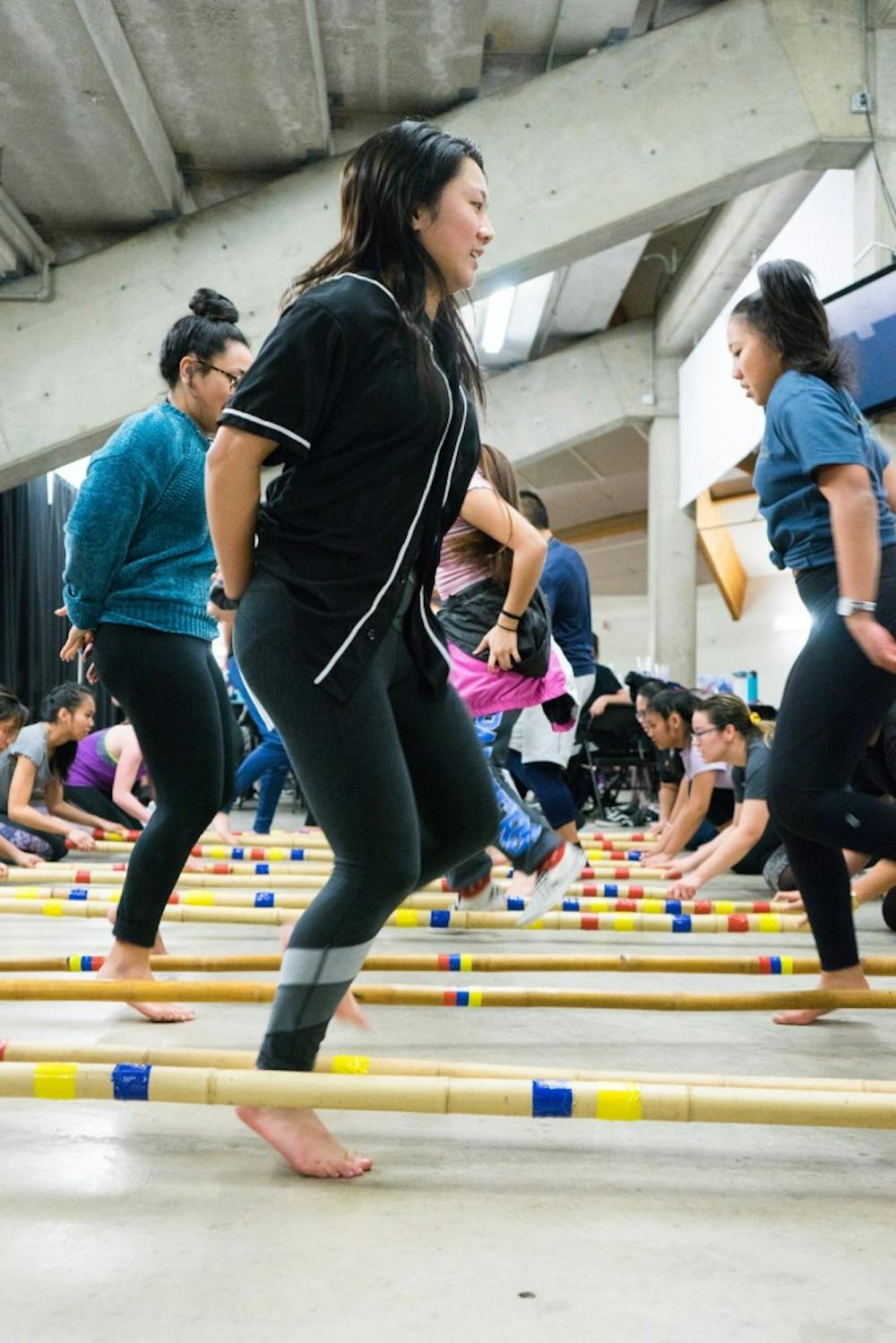
“Freshman year I moved here from L.A., and that area is so much more diverse than Portland. So, I was feeling really lost and homesick,” Legaspi said. “I got really involved in FASA and it really gave me a sense of who I am and why I should be here, and a group of friends that I can call a family.”
While club members want to be inclusive and the event is open to all, this is the first year that the club is charging a five dollar entry. This is a result of less funding for the club for the 2018-19 academic year, according to Tanega. FASA’s leadership realized that they would exhaust funding if they were to hold PCN only with the money allocated to the club. So, to ensure that next year’s members would have funding left, they decided to try to bring in some revenue. But students in FASA still paid out of pocket for parts of the event, such as costumes.
“You should expect to see some sort of growth with resources,” Martin said. “It just doesn’t make any sense, right? We played by the rules. There was absolutely no reason why we shouldn’t have gotten that money. Obviously, I don’t know a hundred percent what was behind that. All I know is what happened and what we did and why we didn’t really deserve that kind of a thing.”
Other cultural clubs on campus have faced similar funding issues this year, and submitted a collaborative opinion piece to The Beacon after a round table discussion was initiated by FASA leadership. The article calls on administration to take action when it comes to supporting UP’s cultural groups, which keep growing in numbers and furthering diversity on campus.
“We need room to grow, which is basically the biggest thing,” Tanega said. “But I do love the growth we’re seeing and how we can band together and talk about why we think diversity is more than just, you know, ‘a vision’...why it really has to be enacted. You can’t just say statements about diversity and inclusion without actually showing that you care about diversity and inclusion.”
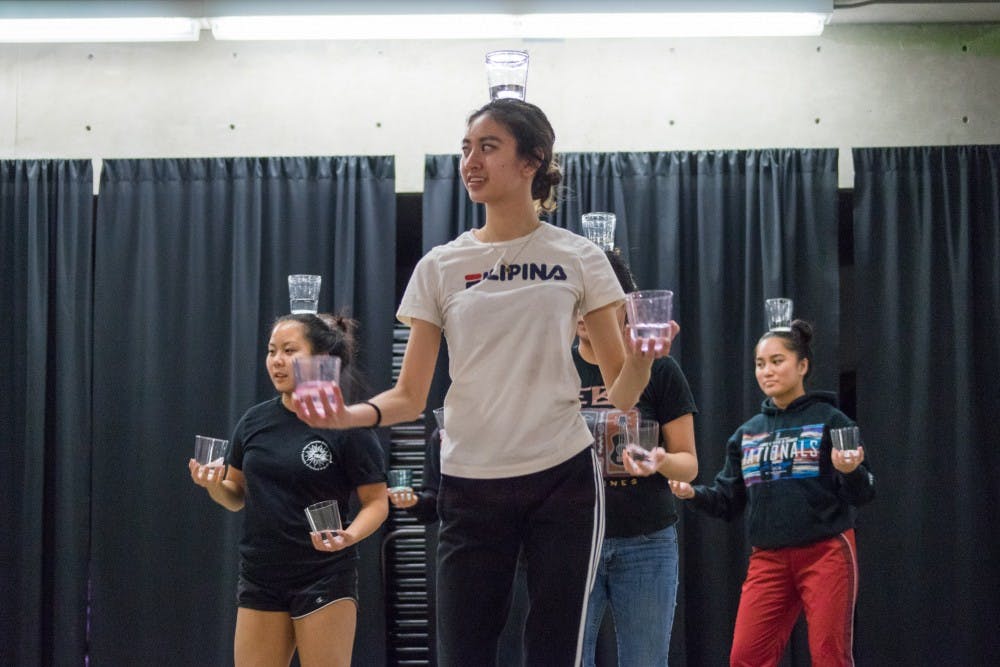
Vice president Sabrina Legaspi practices the water dance with other members of FASA.
Despite these setbacks, FASA members have pushed forward with PCN in their usual fashion, preparing for the event since October. Late night practices are tiring, but enjoyable. Students are laughing as they try to balance water on their heads. They focus on their dances and pull Tanega or Kyle Dela Cruz, another senior member of the club, aside to ask about certain steps.
When they aren’t dancing in groups, they don’t just sit back and relax. They stay at work, preparing the remaining decorations, focusing on their own homework or even taking that free time to continue perfecting their dances.
There is no external motivation for this effort. The students don’t get extra credit or pay. This large ensemble is working this hard simply because they enjoy it. They are proud of their heritage, and they want to share it with others.
“It’s really nice to be able to show off, you know, the fruits of your labor and just show that to the larger UP community, and show this is what we’re about,” Tanega said. “This is our club. This is our culture. This is what we’re passionate about. And just show that we’re here and that we’re present.”
Ana Clyde is a senior sports reporter and copy editor for The Beacon. She can be reached at clyde20@up.edu.



